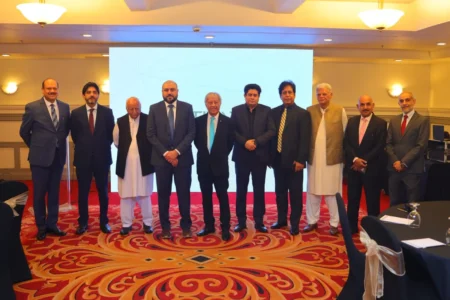LONDON: Mr. Tim Clark, President Emirates has warned legacy carriers that low-cost, long-haul operators are simply a “matter of time”. Speaking at the Aviation Festival in London, the industry veteran said the development would be a “great step forward for the industry”.
“We have seen what happened in short-haul with low-cost,” Clark said.
“That had an explosive, nuclear effect on our industry; though for the best. They have done wonders for consumers.”
Clark added that Dubai-based Emirates was aware of the challenge and was confident it could meet the changing demands of consumers.
“I am hoping Emirates will be able to match the low-cost, long-haul carriers in terms of base price, in certain segments.
“We have 93 Airbus A380s, where we have plenty of space to work with, with up to four economy classes, for example. This is going to come and we need to be ready to deal with it.”
Clark has previously described the development of low-cost, long-haul carriers as a “gathering storm” for airlines in the Middle East.
However, it would not all be plain sailing for new entrants, Clark warned, with a series of potential challenges ahead, not least aero-politics.
The Emirates President pointed to the example of Canada, where the Dubai flag-carrier currently only offers three flights a week.
“They are worried about us,” he said.
“Now, Canada is a huge market, with multiple cities, with a lot of people originating in the Middle East and the markets we served beyond Dubai.
“Yet, they seem to think we are a terrible threat, out to wreck the aviation market in Canada.
“If you have a problem there, what it is going to look like when low-cost, long-haul operators start hitting Vancouver, Ottawa, Calgary and places like that?
“Will they be allowed in?”
Clark also warned incumbent, full service airlines would be working to up their game.
“One of the biggest issues low-cost, long-haul carriers are going to face is that the likes of Emirates are going to examine how they present and how they deliver their products.
“It is clear that with the digital revolution that we are far more capable in stripping out and reconstructing, in this technological environment, to offer what people want in this market.
“We are able to build a proposition to create something new.”



